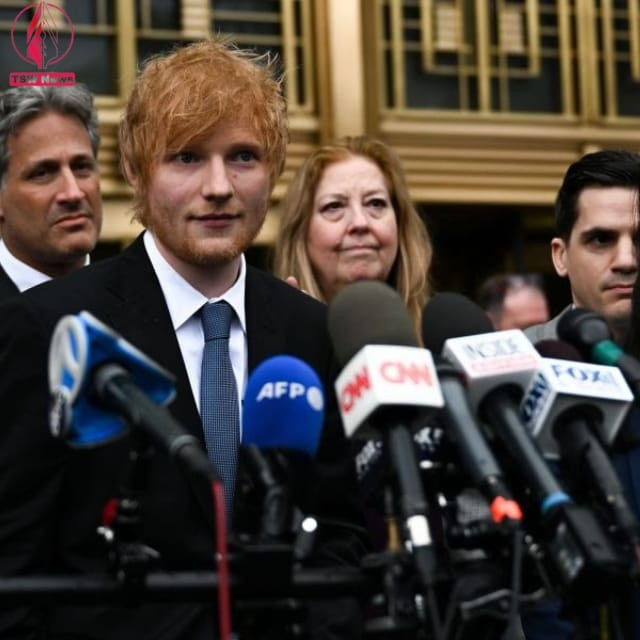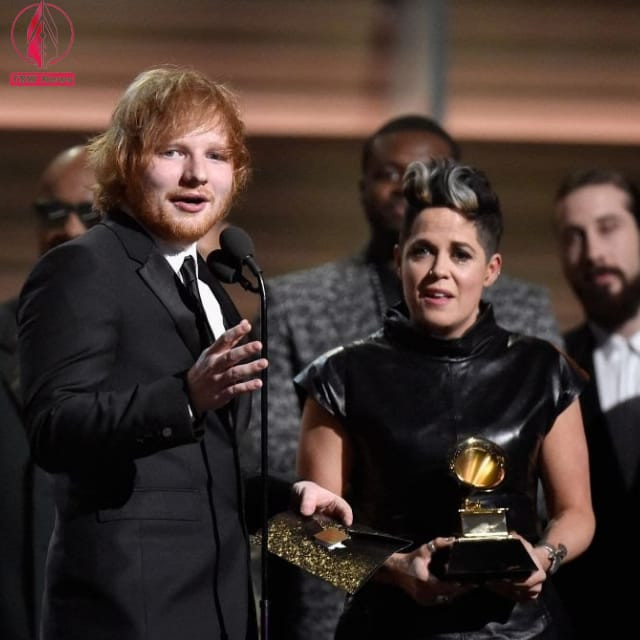"Ed Sheeran Triumphs in Legal Battle Over Alleged Copyright Infringement of Marvin Gaye's 70s Hit.
- Posted on May 5, 2023
- News
- By Navya Shrivastava
- 338 Views

In the music industry's most high-profile copyright case in
years, a federal jury determined on Thursday that Ed Sheeran, the English pop
sensation, did not plagiarize Marvin Gaye's 1973 classic "Let's Get It
On" for his 2014 hit Thinking Out Loud.
During a two-week trial in a downtown Manhattan courtroom, Ed
Sheeran, one of the biggest global hitmakers in music, testified, often with a
guitar in hand, that he and his longtime collaborator Amy Wadge had
independently created "Thinking Out Loud" one evening. Sheeran
explained that the song was inspired by the long-lasting love that they had
observed among the elders in their families.
The lawsuit filed by the family of Ed Townsend, Marvin Gaye's co-writer, claimed that the "heart" of Let's Get It On was replicated in the syncopated chord pattern of Ed Sheeran's hit, Thinking Out Loud.

While Sheeran and his legal team acknowledged the similarities
between the two tracks, they argued that the chord progression was a common
musical element that has been used in many other songs over the years.
After approximately three hours of deliberation, the jury
reached the verdict that Ed Sheeran had created Thinking Out Loud independently and did not infringe on the
copyright of Marvin Gaye's Let's Get It
On.
In a statement that he read outside the courthouse, Ed Sheeran
expressed his satisfaction with the outcome of the case, saying, "I am
obviously very happy with the result."
However, he also expressed frustration that unfounded claims such as this were even allowed to go to court, saying, "At the same time, I am unbelievably frustrated that baseless claims like this are allowed to go to court at all."
Ed Sheeran further commented on the case, stating, "We have
spent the last eight years talking about two songs with dramatically different
lyrics, melodies, and four chords, which are also different and used by
songwriters every day, all over the world."
He went on to explain that these chords are basic musical
elements that have been used for decades, long before the creation of Let's Get It On, and will continue to be
used long after all of us are gone.
Ed Sheeran emphasized that he is just a musician who loves
creating music for people to enjoy and that he will not let himself be used as
a "piggy bank" for anyone. Following the announcement of the verdict
shortly after 1 pm, Sheeran stood up and hugged his legal team before
approaching Kathryn Griffin Townsend, Ed Townsend's daughter, and hugging her
as well. The two spoke briefly afterward.
Kathryn Griffin Townsend expressed her respect for the jury's
decision and her commitment to defending her father's legacy, stating that
"I stood up for my father's intellectual properties. I was up against an
army."
The case, which was filed in 2017 and delayed in part by the pandemic, raised questions about originality in pop music, causing concerns among musicians that the line between inspiration and plagiarism was becoming increasingly unclear.

A similar case involving Robin Thicke and Pharrell Williams' Blurred Lines (2013) was decided in 2015
when a court ruled that the song had infringed on Marvin Gaye's "Got To
Give It Up" (1977), causing a major shake-up in the music industry.
In the years following the "Blurred Lines" verdict,
the music industry experienced a shift, as seen in the English rock band Led
Zeppelin's win in a 2018 appeals court case regarding their iconic hit
"Stairway to Heaven" (1971). The judges in that case guided how copyright
law applies to works that contain "commonplace elements." In Ed
Sheeran's case, the plaintiffs argued that even if individual elements such as
chords are not protected by copyright, the unique "selection and
arrangement" of those elements in "Let's Get It On" warranted
protection.
Sheeran's legal team countered that the plaintiffs' argument did not meet the high legal standard required for such protection. During the trial, Sheeran, who had previously faced accusations of copying on two occasions, occasionally became irritated and defensive while testifying.
For more updates keep visiting our website www.topstoriesworld.com where we provide unbiased, true, and top stories of the world.




